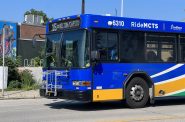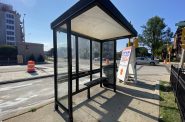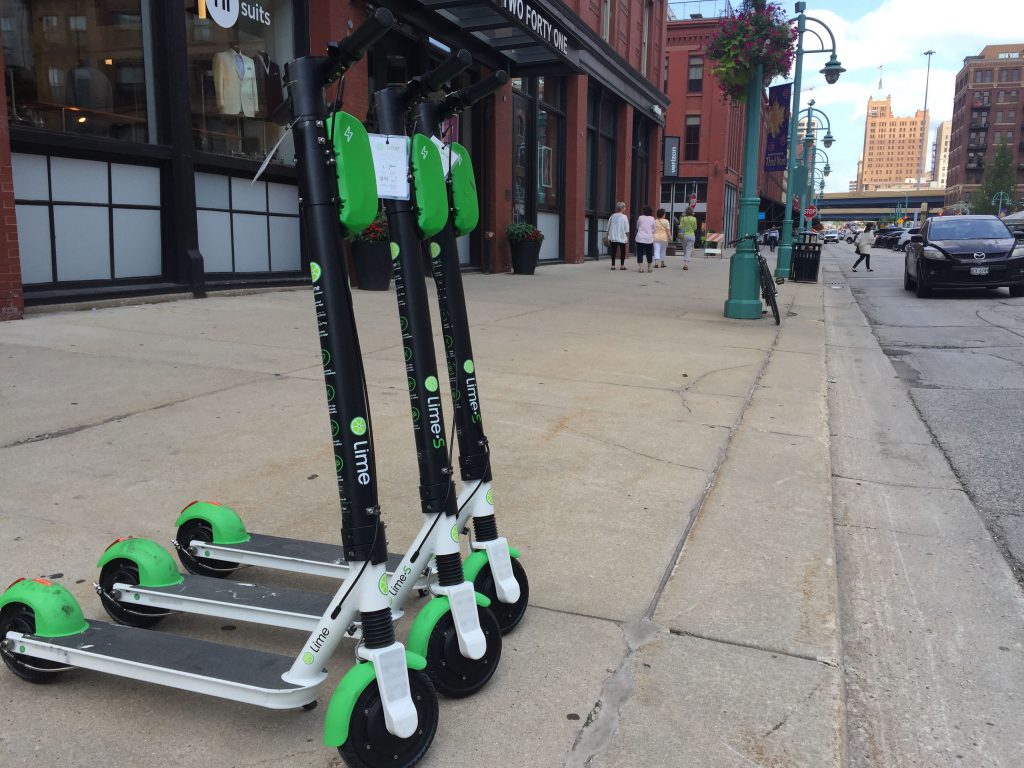City Approves Scooters Through 2023
But it will take until at least August for private operators to re-enter Milwaukee.
Dockless electric scooters are cleared to return to Milwaukee’s streets.
By a unanimous vote and with no discussion, the Common Council authorized a third, and possibly final, pilot study Tuesday morning that authorizes scooter deployment through the end of 2023.
Unlike the 2021 study, the 2022-2023 study does not include an automatic trigger to ban greater downtown area usage if a consultant determines more than 10% of riders are improperly using the sidewalk to ride. But a specific operator could be terminated for failing to comply with the program regulations.
In 2019 and 2021, the same three companies — Bird, Lime and Spin — were authorized to deploy scooters in Milwaukee.
DPW representatives said that geofencing could be used to limit speeds for vehicles that GPS technology indicates are on a sidewalk. Such geofencing is already used to prohibit riverwalk riding and ending a ride in certain areas
In 2021, DPW reports that people took 481,706 riders on the electric scooters, an average of 2,452 rides per day over the five-and-a-half month pilot study. That’s up from 350,130 rides in 2019.
The average ride time was 10 minutes, with an average distance of 0.9 miles. Each individual scooter, rentable with a smartphone application, was used an average of 2.6 times per day. The companies were each allowed to deploy up to 1,000 scooters in the city. Under the new pilot, they will be allowed 600 scooters each.
Each company operating in Milwaukee in 2021 integrated technology into its scooters to detect sidewalk riding. But it wasn’t entirely effective. The third-party consultant found that 25.5% of all riders observed over three visual monitoring periods were riding entirely on the sidewalk.
Bird relied on a GPS-based technology. Approximately half of its scooters had the technology by fall 2021, with scooters eventually stopping if sidewalk riding continued on a trip.
Lime used GPS location data mixed with vibration data to warn riders who spent more than 50% of a trip on the sidewalk that a fine of $10 could be issued. No fines were issued, though the technology was integrated into every scooter it offered.
Spin used a camera mounted on 100 of its scooters to detect sidewalk riding, with an audio alarm that went off until a rider returned to the street.
Transportation
-
MCTS Adds 28 New Buses
 Jul 13th, 2024 by Graham Kilmer
Jul 13th, 2024 by Graham Kilmer
-
MCTS Designing New Bus Shelters
 Jul 10th, 2024 by Graham Kilmer
Jul 10th, 2024 by Graham Kilmer
-
MCTS Updates RNC Bus Detours To Better Serve Downtown, Riders
 Jul 9th, 2024 by Jeramey Jannene
Jul 9th, 2024 by Jeramey Jannene






















